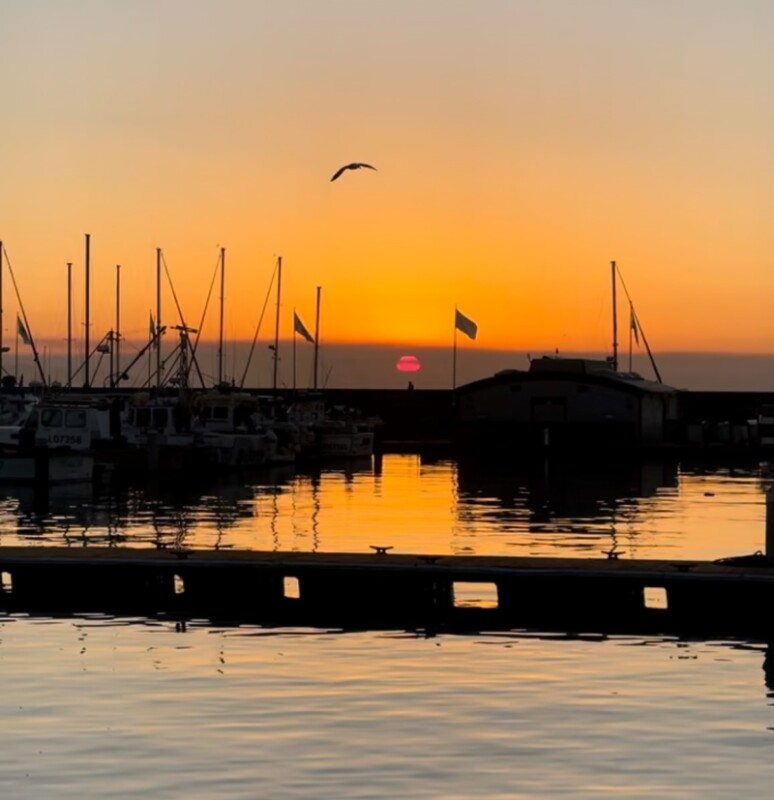Fishermen in the LA area and southern California have largely escaped the direct impacts of the fires raging on shore, but they are feeling some effects, and the fires have destroyed many of their markets.
“Right now, that’s not what we’re thinking about,” says Ava Schulenberg, assistant director for The Commercial Fishermen of Santa Barbara (CFSB). “Here in Santa Barbara, we’re mostly concerned about our partners. A lot of guys here have years, even decades, long relationships with the restaurants, retailers, and farmer’s markets they sell to in LA. Our main concern is: how can we help?”
Schulenberg notes that sea urchin divers are having the hardest time because of the air quality. “The air is so bad the compressors can’t filter it,” she says. “We have a lot of guys who just can’t dive right now, and one diver was almost asphyxiated. He almost passed out.” For fishermen trapping spiny lobster, air quality and ash and debris in the water are the trouble. “A lot of our guys go urchin diving down there this time of year,” says Schulenberg. “But they have had to come back, so that’s putting pressure on the resource here.” She notes that the ash on the water is clogging up the seawater strainer on engine cooling systems. “It’s like a silky film on the water,” she says. “A lot of guys just aren’t going out.”
Low prices aren’t helping. From late October until early January, the lobster price dropped more than $10 dollars, from $23 per pound to $12.50, and according to Schulenberg, fishermen have now lost much of their LA market. “I don’t know what they’re going to do,” she says. “But our focus is on helping our neighbors. Fishermen are connected to the environment, and we know what disaster feels like. People die in our industry. So, we feel this deeply. People down there are losing everything.”
The CFSB is sending money to food banks, Schulenberg notes. “We don’t want to send food directly and overwhelm their systems until they’re ready,” she says. “When those pathways open up, we’ll send whatever we can.”
While Los Angeles is the largest fishing port in California, that is largely due to the fleets that land squid, sardines, and tuna in San Pedro, with Santa Monica Bay closed to commercial fishing, the number of fishermen working out of harbors like Long Beach and Marina Del Rey is small. “I’m not going to complain about smoke and ash on my boat when people are losing their homes and sometimes their lives,” says spiny lobster fisherman Craig Jacobs, who fishes out of Dana Point. “I’m reluctant to even talk about it. When the wind was in the west, I could see the smoke blowing east, and it looked like hell down there.” As far as fishermen are concerned, Jacobs believes the urchin divers are the worst affected. “And the young guys who haven’t prepared for this sort of thing,” he says, referring to the double whammy of low prices and disaster.
As Christine Blank wrote in her article Seafood Source on January 13, many LA seafood markets and restaurants have been destroyed, and the impacts of those losses will likely have the biggest impact on fishermen and seafood consumers. For those who lost everything to the fires, the impacts will undoubtedly be lifelong, and for now, the southern California fishing community is focused on helping those people recover.







